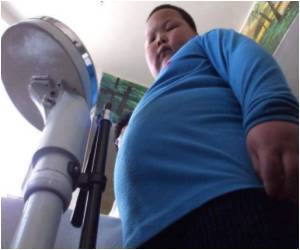A new research has found that boys and girls who take part in physical activity with their best friend in the neighbourhood where they live have higher levels of physical activity.

Data were collected for 986 children of whom 472 provided complete physical activity and best friend data. Participants identified their "best friend" within the school and answered how often they took part in physical activity with the friend and if the friend had encouraged them to be active.
Physical activity was assessed via accelerometer for all children and friends. Mean minutes of moderate to vigorous physical activity per day (Mean MVPA) and mean accelerometer counts per minute (Mean CPM) were obtained for all children and best friends. Regression models were run separately for boys and girls and used to examine associations between child and best friend physical activity.
"Our findings show that supporting physical activity among friendship groups and encouraging friends to be active together, particularly outside of school, may bring about important changes to children's physical activity," said Dr Russ Jago, Reader in the Centre for Exercise, Nutrition and Health Sciences, School for Policy Studies.
For girls, mean MVPA was associated with frequency of activity of the best friend and engaging in physical activity at home or in the neighbourhood, with similar patterns for mean CPM. Boys' mean MVPA was associated with their best friend's mean MVPA and being active at home or in the local neighbourhood.
The paper has been published online in 'Medicine and Science in Sports and Exercise'.
Advertisement











